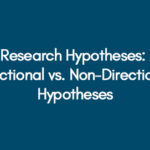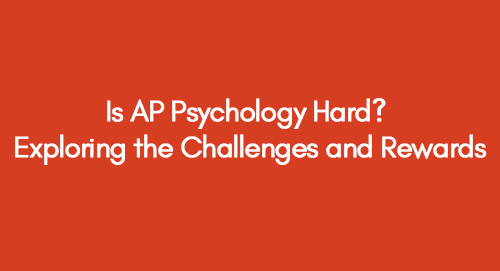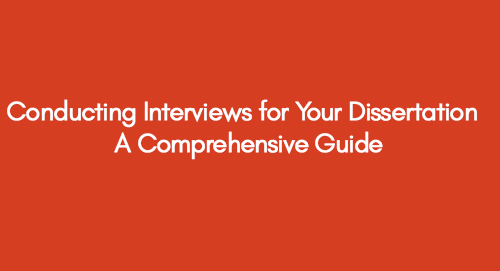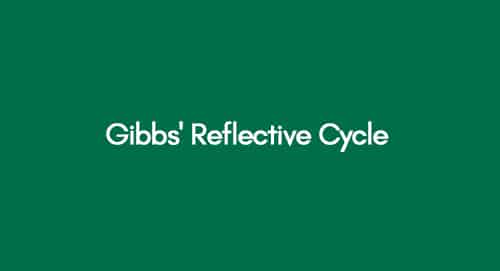
Analyzing the Significance of Procurement Methods in Project Management
February 20, 2024
Research Hypotheses: Directional vs. Non-Directional Hypotheses
February 23, 2024AP Psychology is a college-level course for high school students interested in exploring human behaviour and mental processes. It covers perception, learning, motivation, development, clinical and social psychology. It emphasises critical thinking, empirical inquiry, and the application of psychological principles to understand the human experience.
Review Quality Psychology Dissertation Topics
With the help of this article, we will examine the AP psychology difficulty and explore its challenges and rewards.
Is AP Psychology Hard or Easy?
AP Psychology can be challenging for some, but staying organized, studying consistently, and seeking help when needed can lead to success. Remember, progress takes time, so stay determined and keep moving forward.
How Hard is AP Psychology?
AP Psychology is often seen as one of the easier AP courses, requiring strong organization and consistent effort. With a difficulty rating of 3.5 out of 10, it's considered the second easiest AP course. While it covers a broad range of topics, many students find it manageable in terms of workload and content.
Student Opinion
Many students who have taken AP Psychology believe that it is one of the simpler AP courses offered. However, it's important to note that some of these students may have already completed other AP classes before enrolling in AP Psychology. This prior experience can provide valuable preparation and insight into the expectations of advanced coursework.
Self-Study Opportunities
Self-studying can be a good option for students who either attend schools that don't offer AP Psychology or prefer to learn independently. By making use of textbooks, review books and online resources, students can prepare themselves effectively for the AP Psychology exam. Self-study is flexible in terms of pacing and can be tailored to individual learning preferences.
Exam Difficulty and Average Scores
Although the AP psychology pass rate is approximately 60%, it's crucial not to get disheartened by this number. Instead, it's important to pay attention to the score distribution, especially the percentage of students who get the top five grades. With a 17% rate of fives, it's clear that many students do well in the exam and achieve high scores.
Learn How to Approach Your Assignments
Comparison to Other AP Courses
Compared to other AP exams, the AP Psychology exam is relatively straightforward. The course material is easy to understand and does not require complex maths skills or in-depth analysis of events. Unlike history or science classes, which often demand extensive research and calculations, AP Psychology offers a more accessible curriculum that is easier to comprehend.
Challenges and Rewards in AP Psychology
AP Psychology is a very interesting subject that helps us understand how the human mind works and why people behave the way they do. However, it can be difficult to study and learn. Let's talk about the good and bad parts of studying AP Psychology.
Challenges:
Depth of Content: AP Psychology can be challenging because it covers a lot of information about the history of psychology and various psychological theories and concepts. Students need to understand a wide range of topics, which can be difficult.
Memorization: In AP Psychology, you have to learn many different words, ideas, and experiments about how people think and behave. This can be a lot of work for some students, especially if they have trouble remembering things they have to memorize.
Critical Thinking: Although memorization is necessary, AP Psychology also needs critical thinking abilities. Scholars must examine and assess various psychological viewpoints, put theories into practice in real-life situations, and think analytically about research discoveries.
Exam Format: The test for AP Psychology has two types of questions - multiple-choice and free-response. Some students may find it difficult to handle both types of questions and manage their time while taking the test.
Rewards:
Understanding Human Behavior: Studying AP Psychology can be very interesting as it helps us understand human behaviour better. We learn about various factors that affect our thoughts, emotions, and actions, which can help us become more self-aware and empathetic.
Preparation for College: Studying AP Psychology can help you learn important skills that are useful in many different college subjects. These skills include thinking carefully about things, analysing research, and communicating well. Also, if you do well on the AP exam, you might be able to get college credit or start in more advanced classes, which could save you time and money later on.
Career Opportunities: Studying psychology can lead to many different types of jobs. You can work as a counsellor, social worker, teacher, or in business. AP Psychology is a good way to start learning more about these career options.
Personal Growth: Learning about AP Psychology can be very interesting and thought-provoking. It allows students to explore fascinating topics related to the human mind and gain a better understanding of its complexities. Additionally, it can be a personally enriching experience that helps to develop critical thinking skills and broaden one's knowledge base.
Understanding the AP Psychology Exam Format
Preparing for the AP Psychology exam? It's essential to know what to expect on test day. Let's delve into the format of the exam so you can be fully prepared.
Multiple-Choice Section
The bulk of the AP Psychology exam consists of multiple-choice questions. Here's what you need to know:
Number of Questions: There are 100 multiple-choice questions in total.
Time Limit: You'll have approximately one hour and ten minutes to complete this section.
Content Coverage: These questions cover a wide range of topics, including social, developmental, clinical, and cognitive psychology, as well as research methods and the biological bases of behaviour.
Question Types: Expect questions that test your understanding of concepts, your ability to analyze data, and your knowledge of the scientific process.
Free-Response Section
In addition to the multiple-choice questions, there are also free-response questions. Here's what you should know about this section:
Number of Essays: You'll need to write two short essays.
Time Limit: You'll have 50 minutes to complete both essays.
Content Coverage: These essays will assess your understanding of key concepts and your ability to apply them to real-world scenarios. Topics may include explaining psychological theories or designing research studies.
Essay Structure: Your answers should be clear, well-explained, and organized to earn full credit.
Review Our Quality Academic Writing Examples
Preparation Tips
Feeling a bit anxious about the free-response section? Here are some tips to help you prepare:
Practice: Work on practice free-response questions provided by your teacher or available in study guides.
Review: Go over your class notes and textbook to reinforce key concepts and theories.
Understand the Rubric: Familiarize yourself with the scoring rubric for the free-response questions to know what graders are looking for in your answers.
Stay Calm: On test day, take deep breaths and stay focused. You've put in the work, and you're ready to show what you know.
AP Psychology Exam Scoring Breakdown
AP Score and Equivalent College Grade
Once your exam is scored, you'll receive an AP score ranging from 1 to 5. Here's how your score translates into a college grade equivalent:
5: A+ or A (Extremely well qualified) – 70-75% on the exam
4: A-, B+, or B (Very well qualified) – 60-69% on the exam
3: B-, C+, or C (Qualified) – 50-59% on the exam
2: C-, or D (Possibly qualified) – 40-49% on the exam
1: D-, or F (No recommendation) – 0-39% on the exam
Each AP score indicates your performance relative to college-level expectations. Higher scores demonstrate deeper understanding and may earn college credit or advanced placement.
Conclusion
Now that you have a clear understanding of how the AP Psychology exam is scored, you can approach your preparation with more confidence. Remember to review the key concepts thoroughly, practice applying them to different scenarios, and get familiar with the scoring rubric. With diligent preparation and focused effort, you can achieve success on the AP Psychology exam and earn a score that truly reflects your knowledge and skills in psychology.
FAQs'
Get 3+ Free Dissertation Topics within 24 hours?


























